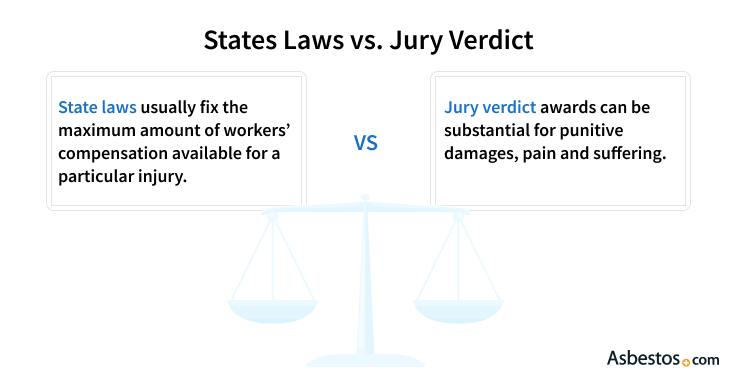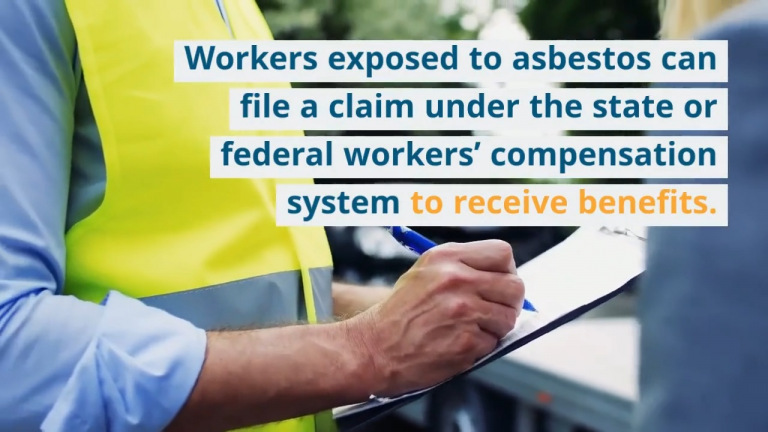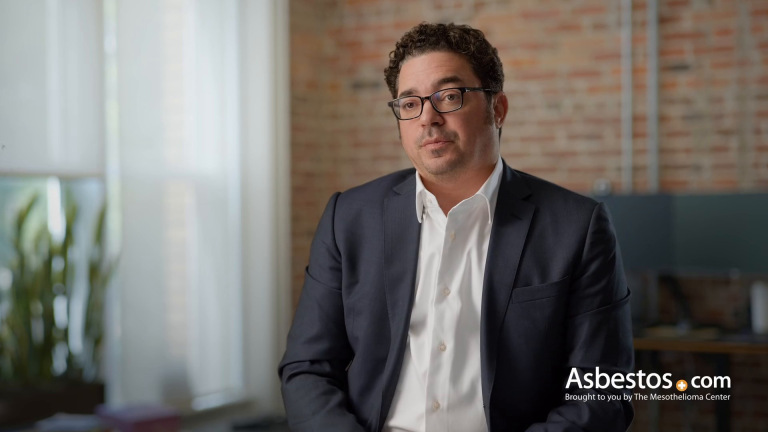Workers’ Compensation for Mesothelioma Patients
Patients with mesothelioma may be eligible for workers’ compensation if they were exposed to asbestos on the job. Since mesothelioma is typically diagnosed after the time allotted by most states to file a workers’ compensation claim, this makes proving asbestos exposure on the job difficult.
What Is Workers’ Compensation?
Workers’ compensation programs compensate employees for injuries they sustain on the job. Every state has a workers’ compensation program, which provides various benefits to injured employees.
Workers’ Compensation Benefits
- Medical care
- Temporary or permanent disability payments (replacement income)
- Assistance finding another job (vocational rehabilitation) if appropriate
State laws vary, and state boards administer workers’ compensation programs. Payments typically include a fixed amount of compensation, usually set by state law and based on the type of injury.
Replacement income provides only partial compensation for lost income and is usually subject to certain limits.
Who Qualifies for Workers’ Compensation for Mesothelioma?
Workers who develop asbestos-related illnesses may be eligible for workers’ compensation. Asbestos-related diseases include asbestosis, mesothelioma and other forms of cancer. Workers’ compensation eligibility requirements vary by state. In general, states apply four basic eligibility requirements to claimants:
- Must be an employee
- Employer must carry workers’ compensation insurance
- Injury or illness must be work-related
- Must meet the state’s deadline, known as the mesothelioma statute of limitations, for reporting the injury and filing a claim
An injured employee must usually report work-related injuries in writing to the employer, who then must provide the worker with a claim form. Families of deceased workers may also be eligible to apply for benefits. The employer must submit the form to the local board office and insurer.
Navy veterans diagnosed with asbestos-related illnesses may file claims with the Longshore and Harbor Workers’ Compensation program. The four basic eligibility requirements for general workers’ compensation claims also apply to the Longshore program.
5.0 rating | 150+ reviews | A+ BBB

How Can an Attorney Help With Workers’ Compensation?
A qualified attorney can help keep your workers’ compensation claim moving forward and improve your chances of receiving compensation. They will gather evidence to support your claim, plan strategies in case your claim is disputed and represent you at hearings.
If your claim is disputed, an experienced attorney can represent you in front of the Workers’ Compensation Appeals Board. A mesothelioma attorney has the expertise to handle your workers’ compensation claims and other legal claims for mesothelioma compensation that you may qualify for.
Workers’ Compensation vs. Mesothelioma Lawsuits
For some people exposed to asbestos at work, filing a claim with a state or federal workers’ compensation system is one legal option. These systems can be challenging to navigate. Many workers’ comp claims result in only modest amounts of financial help, but they have served as a source of compensation for asbestos victims.
Legal options for asbestos exposure compensation include a mesothelioma lawsuit or asbestos trust fund claim. A KCIC industry report shows that 3,685 lawsuits emerged for occupational asbestos exposure in 2020.
You should consult a qualified mesothelioma attorney if you are considering filing a workers’ compensation claim for asbestos exposure or a lawsuit. Filing a workers’ compensation claim with an employer and filing a lawsuit against an asbestos manufacturer involve different processes, durations and varying likely financial compensation outcomes. Understanding each legal option’s nuances is essential before deciding which one to choose.
Workers’ Comp Claims Have Stricter Time Constraints
Like lawsuits, you must file a workers’ compensation claim within an established time frame after an injury occurs. Each state has its own set of guidelines that dictate eligibility.
Although most cases of mesothelioma are a result of occupational asbestos exposure, not all people with mesothelioma are eligible to file a workers’ compensation claim. Because of its long latency period, mesothelioma does not surface within the time allotted for a workers’ compensation claim.
In addition, most former workers diagnosed with mesothelioma no longer work at the job where their exposure occurred. Asbestosis patients may be more likely to qualify for this option because the disease’s shorter latency period is around 10 years compared to 20 to 50 years for mesothelioma.
Lawsuits May Provide a Broader Range of Compensation
The compensation available through a workers’ compensation claim is often modest compared with the more considerable compensation generally available through a potential lawsuit or trust fund claim. State laws usually fix the maximum worker compensation available for a particular injury.

The workers’ compensation process is nonadversarial, meaning claims do not assign blame, and punitive damages and other forms of compensation are unavailable. On the other hand, jury verdict awards may include punitive damages and compensation for pain and suffering. Accordingly, a successful lawsuit can substantially increase your compensation, even if your lawsuit settles out of court.
Workers’ Compensation Claims Are Often Disputed
Individual circumstances influence the outcome of a workers’ compensation claim. Merely filing a claim does not guarantee financial benefits.
Suppose a dispute arises with your claim or you are unhappy with the outcome of your workers’ compensation hearing. In that case, you may file an appeal with the state workers’ compensation commissioner or in a court of appeals.
Other asbestos compensation and financial assistance are available through asbestos trust funds, government disability programs and the Veterans Administration. For legal advice, consult a qualified mesothelioma law firm.

Don’t miss out on the benefits you deserve. Find out what VA benefits are available for veterans like you.
Get a RecordingWhat Are the Issues With Workers’ Compensation?
Although workers’ compensation laws can benefit eligible employees, they also protect employers from lawsuits by limiting compensation.
The federal government and a handful of states rely on government sources to fund workers’ compensation claims. Most states fund their compensation budgets exclusively through the private sector or through private insurance carriers, which compete with state-run funds.
Because of substantial underwriting losses, private insurance carriers have reduced the scope of workers’ compensation programs in the past two decades. Some states have increased private competition to reduce program costs for employers.
Common Questions About Workers’ Compensation for Mesothelioma
- What compensation options are available for occupational asbestos exposure?
-
Mesothelioma compensation options for workers with a history of occupational exposure include asbestos trust funds, mesothelioma lawsuits and settlements.
- Should I consult an attorney before filing a workers’ comp claim?
-
Employees who have experienced occupational asbestos exposure should consult an attorney before filing for workers’ compensation. Asbestos lawyers can represent you in court with the best resources available and are familiar with the complex processes of asbestos-related claims.
- Can I file a mesothelioma lawsuit instead of a workers’ comp claim?
-
A person diagnosed with mesothelioma is eligible to file a personal injury mesothelioma lawsuit. Compensation from this type of lawsuit can reduce the financial burden of a mesothelioma diagnosis for you and your family.






